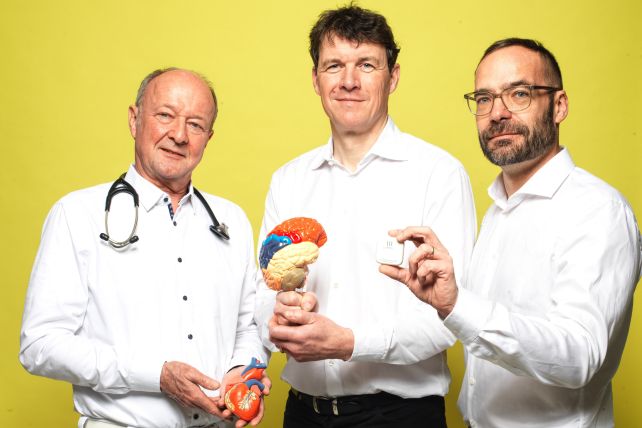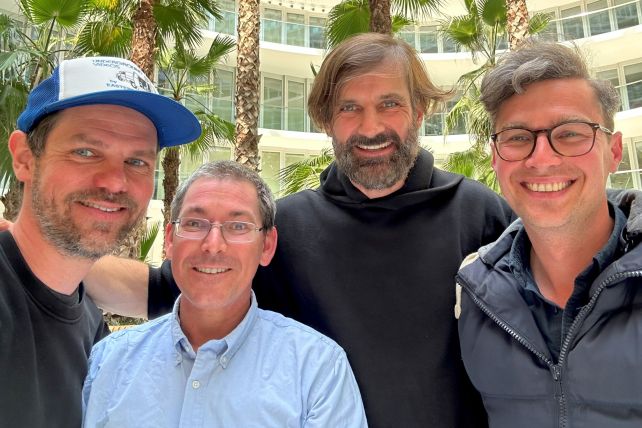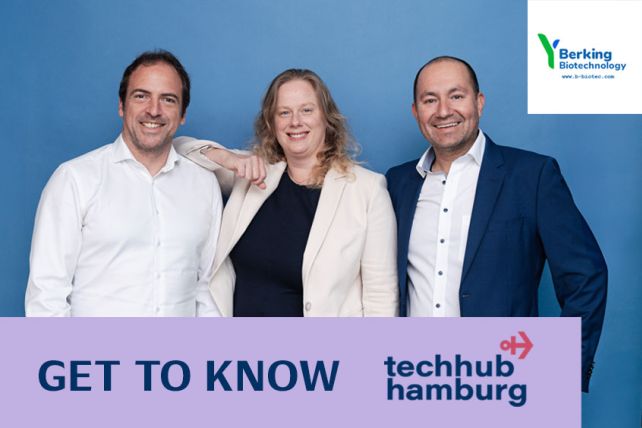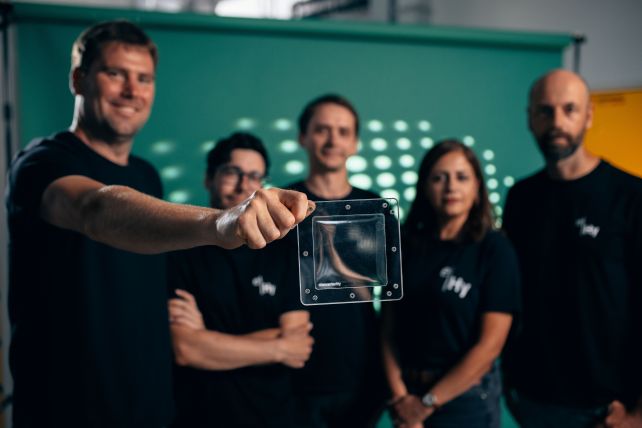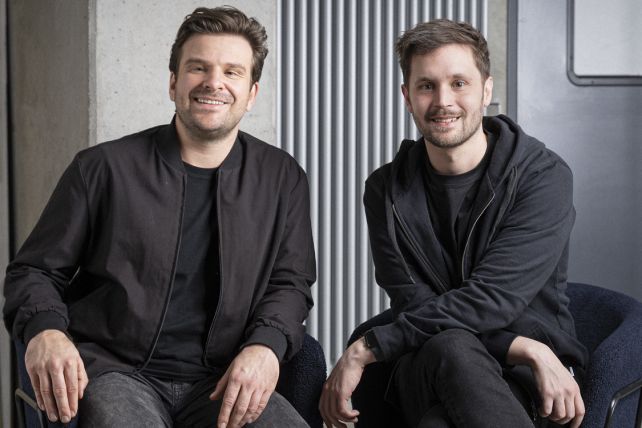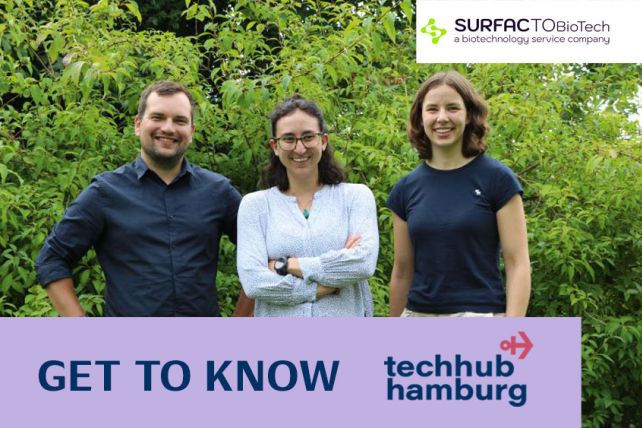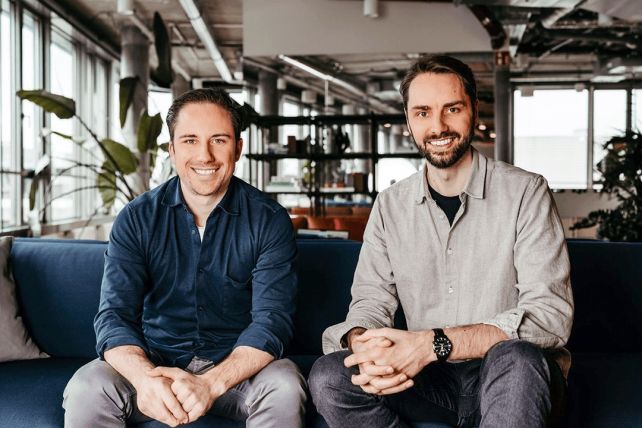10,000 new apartments per year - that is the ambitious target set by the city of Hamburg. Achieving this goal involves a number of challenges, one of which is identifying suitable and available premises. This detective work is done by the software of the startup Modoplus, recently not only in Hamburg, but also in three other German states.
Hamburg's population is growing, and that applies to the entire Federal Republic. Demand for housing is rising accordingly. One of the German government's most important plans is therefore to create 400,000 new homes a year, 100,000 of them social housing. In times of high inflation, rising interest rates, shortages of materials and skilled labor, this is a task for which every form of digital assistance is welcome. This works best in the run-up to the actual construction process, during potential analysis and planning.
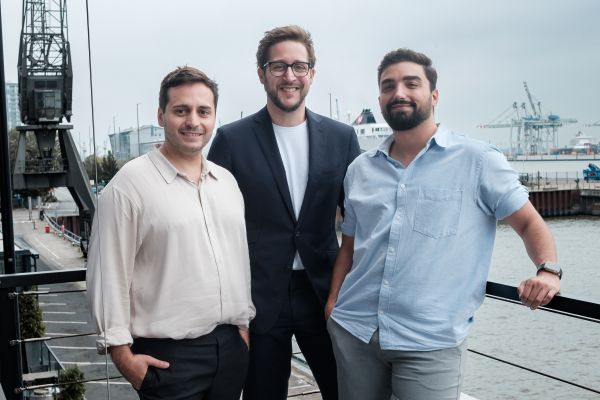
Modoplus has a project developer, an architect and a software engineer as founders
Julian Bauer and Leif Nader Buchmann know exactly how much work and time is involved in real estate planning. Both studied architecture and have worked for well-known companies in the industry, Julian most recently for SAGA in Hamburg, Leif for Herzog & de Meuron in Basel. They got to know each other during their time together at Gerber Architekten. The two are part of the official founding trio of Modoplus. The third man is software engineer Tolga Babacan, who previously worked at IBM as solution architect.
Modoplus had its origins in the spring of 2020, when Julian and Leif fleshed out their idea of using software to simplify and accelerate the development of potential building sites. While every project has its own idiosyncrasies, many things also run according to fixed rules. Germany is known for its thoroughness and sometimes very detailed regulations, and this naturally also applies to planning and building law. So when creating the software, this catalogue of regulations had to be taken into account from the outset.
While the legal principles may be complicated, they at least apply across localities and represent a comparatively manageable amount of data. For a comprehensive analysis, however, much more information is needed, in principle about every street, every building, every undeveloped area. Is a district more of a residential or commercial area? Do issues of historic preservation or environmental protection need to be considered? These and many other aspects can influence the decision for or against a building project. Data relevant to the decision are generally available, but so far not from one source. The research is correspondingly laborious and the subsequent analysis time-consuming. This is another advantage of digitising processes.
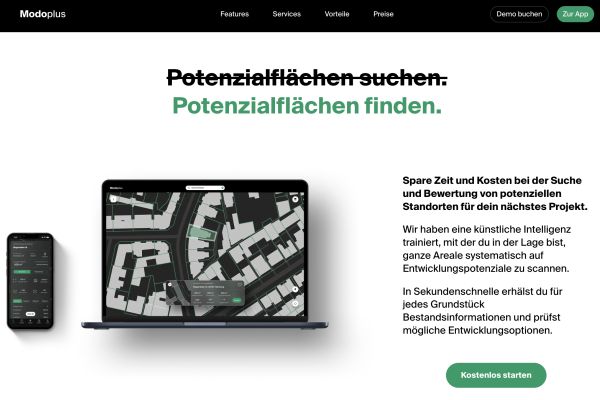
AI makes it possible
Its first real test run made Modoplus in the fall of 2021, at a time when Leif and Tolga also officially joined the startup full-time. The paid pilot project involved a three-family house, a well manageable scale for a startup. Even then, the essential function was available, namely the potential analysis, based on geodata and the legal framework. However, the software was still a beta version at the time and not as powerful as it has become.
Modoplus explains its current capabilities through a series of steps. The first step, as mentioned, is real-time potential analysis. This is followed by an overview of the relevant inventory data on land and buildings. This is more than just a list of facts and figures; various maps, including satellite images, provide a broader overview. In the next step, graphical 3D models can be created for the planned buildings. These can be downloaded for further use, as well as exposés.
To provide this service and process the required data volumes, Modoplus uses artificial intelligence (AI). This is where the third co-founder Tolga comes into play. Of course, he is not left to his own devices when it comes to software development. Jonas Luft, an expert in geoinformatics and -data, has also been involved since November 2022. By now, the Modoplus team consists of eleven people and is internationally positioned. With Amrit Schliesing, there is also an urban planner who feeds the AI with her know-how.
The expansion of the team was made possible not least thanks to a financing round that Modoplus was able to conclude in the summer of 2022. This round brought 550,000 euros into the startup's coffers. It only took around six weeks to attract various experienced business angels from the proptech industry, i.e. the digital sector of the real estate world, for the pre-seed round. And this at a time when the market is struggling with the difficulties mentioned at the beginning and investor money is not so easily accessible.
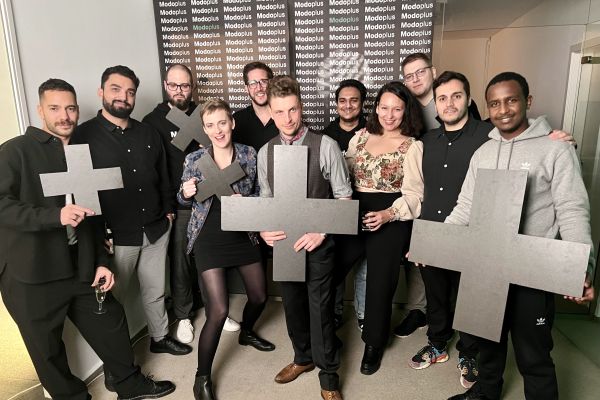
October 2022 is a month of success for Modoplus
A subdued mood could also be detected by original founder and CEO Julian at EXPO REAL in Munich at the beginning of October. EXPO REAL is the leading trade fair and conference for the real estate industry and virtually a must-attend event for companies in this sector. For several years now, the Startup-Unit of Hamburg Invest has been offering Hamburg startups the opportunity to present themselves at a joint stand at the major event. And the mood here was extremely positive, reports Julian. An attractive stand, good preparation and a total of 85 appointments had made the visit a complete success for Modoplus.
October 2022 will overall go down as a successful month in the history of Modoplus. While the planning software initially only covered Hamburg, Berlin, Hesse and North Rhine-Westphalia, the most populous German state of all, have now been added in one fell swoop. This automatically expands the potential customer base, which already includes leading companies such as Engel & Völkers and Frank. Modoplus addresses brokerage houses and project developers as well as architects' offices, cooperatives, housing companies, cities and municipalities. Other German states are to follow shortly, and internationalisation is also planned. All this is managed from Hamburg, where the team has just moved into a new office to be able to continue its growth.
